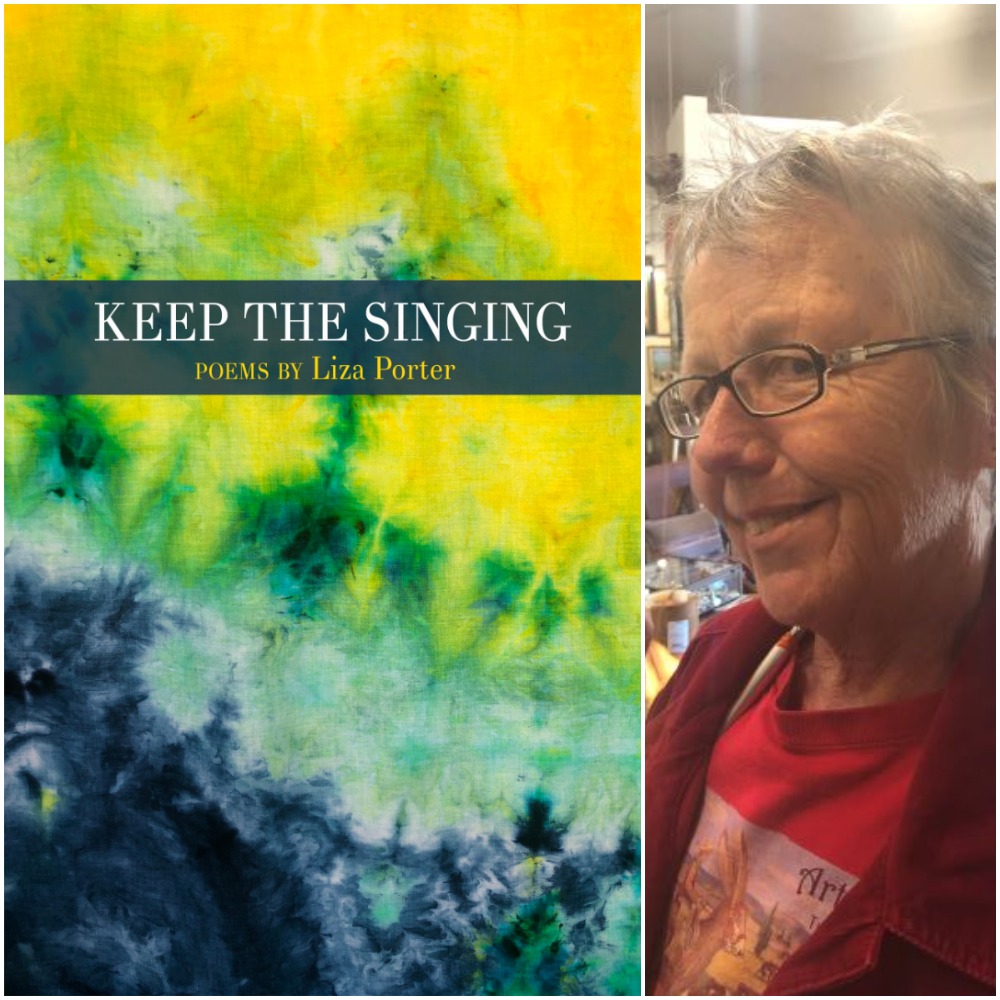Liza Porter’s Keep the Singing is a poignant, lyrical, elegy to her sister, exploring their mutual and separate memories and experiences in the West. Confronting her own survivor’s guilt (“…those of us with the same blood in our veins/ and all these things still wander in a spiral of why, how, what”) and anger (“they say she’s/ in the Light they say in the Light they say in the/ Light. Fuck the Light.”), Porter relives her own childhood and adolescent through an inconsolable absence. Regret too is never far from Porter’s heart (“Why did we think we were so ugly, so despicable? Why did we hate ourselves so much?”), however tempered by the renewal of life (“My grandson is born/ a month or so before Edie dies.”). Keep the Singing is exactly how Porter pays homage to her sister, how she still hears her in the ocean, in the wind and grasses, amid the desert of her devastation.
–Tyrone Williams, author of As Iz, and Washpark
“Sing a song for her leaving,” the poet writes of Edie, her older sister, in Keep the Singing. The poems in this collection are elegies recognizing and celebrating the human spirit’s ability to survive abuse and loss. But while youthful trauma forged the sisterly bond that transcends death, it was music and poetry that allowed both siblings to acknowledge that violation, begin to heal, find meaning in the suffering, turn their journeys into art, and leave the reader wanting more.
–Susan Cummins Miller, author of the Frankie MacFarlane novels and the forthcoming chapbook, Making Silent Stones Sing
Keep the Singing by Liza Porter is a beautiful, heart wrenching lament for loss. The book opens with a short, stunning poem entitled Sister: “I see/rusty orange petals/ and myself/at twelve/going to you in the night/when the blood came.” This poem establishes the tie between the two sisters. Porter’s poems remind me of Natasha Tretheway’s poem After Your Death: “First, I emptied the closets of your clothes, /threw out the bowl of fruit…” Then there are always the details of clearing things out when a loved one dies, drawers to empty, closets where a grandmother’s coat hung. The sister in Keep the Singing is cremated and the writer laments in Cremation, “….how can I speak/or sing to her if there is no place where she is…” Then comes a transcendent moment in the poem, a splendid moment that quite literally lifts the reader in Say we had poetry then: “….Say this book of poems/fell from the sky into our laps, one night, the words/filling our souls with so much light/we couldn’t hold it, we would burst into stars.” Keep the Singing reminds one of what it is to be human, to love and to feel heartbreaking loss and to finally “…. track the light.”
–Dianna Mackinnon Henning author of The Broken Bone Tongue and Tenderness House






Reviews
There are no reviews yet.